- Home
- -Blog
Is wordpress good for small business
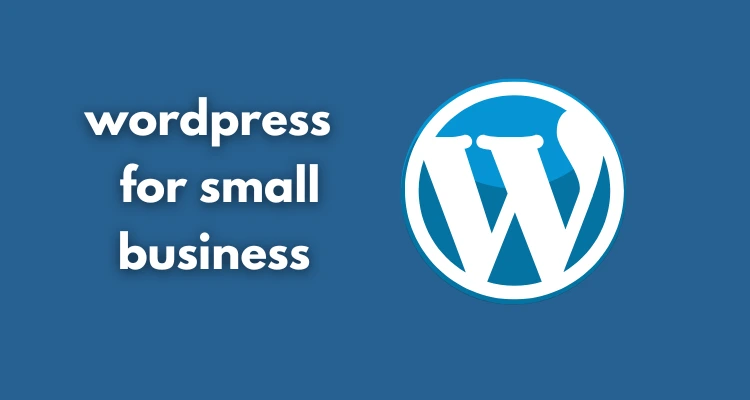
- 13 Jan 2025
- Shabir Ahmad
WordPress has become one of the most widely used platforms for creating websites, and for good reason. Its flexibility and ease of use make it a popular choice among individuals, big brands, and small businesses alike. For small business owners, building a professional website is often a crucial step toward growth, and WordPress offers a solution that can fit almost any need.
You might be wondering, though-does WordPress truly meet the unique needs of small businesses? With so many options available today, it's important to weigh its benefits and understand if it aligns with your goals. Here's a fact to consider: WordPress powers 43% of websites on the internet, making it a dominant force in the world of online presence.
Let's dive into why WordPress continues to be a leading choice and whether it's the right fit for your small business.
What Makes WordPress Stand Out for Small Businesses?
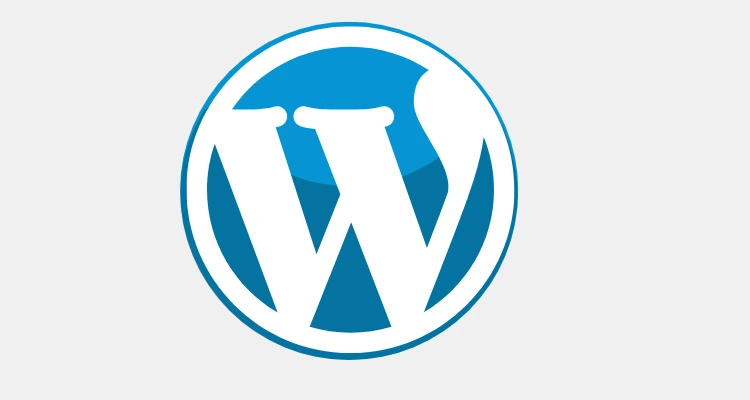
WordPress stands out as a go-to platform for small businesses due to its versatility, affordability, and ease of use. Let's explore the key features that make it a smart choice for businesses looking to establish a strong online presence.
Customizable Themes
Small businesses often need their websites to reflect their unique identity. WordPress makes this achievable with a vast library of customizable themes. Whether you're running a local café, a consulting firm, or an online shop, you can choose from thousands of free and paid themes that can be adjusted to match your branding-no coding required. This means your website can look professional and polished without the need for expensive design services, though many small businesses still choose to work with trusted agencies like Digital8 web design service to ensure everything is set up perfectly from the start.
Plugin Ecosystem
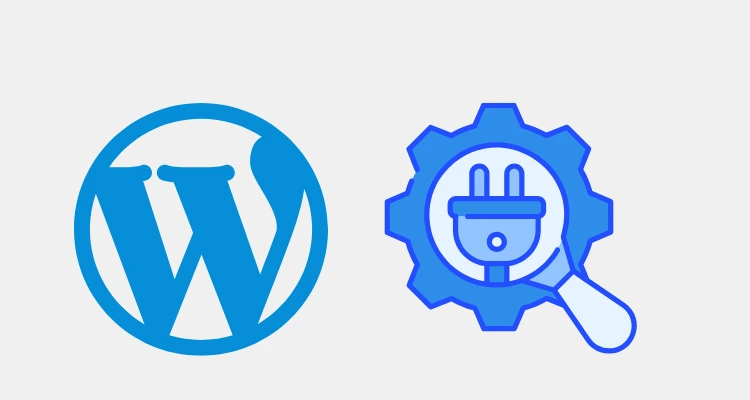
One of WordPress's most powerful features is its plugin ecosystem. Plugins allow small business owners to add functionality to their sites with just a few clicks. For example:
- SEO Plugins: Tools like Yoast SEO and Rank Math can help improve your search engine rankings.
- E-commerce Plugins: WooCommerce transforms your WordPress site into an online store, complete with payment gateways and inventory management. For stores that need flexible payment options like partial payments or deposits, the WooCommerce Deposits Plugin is a powerful extension that enhances the checkout experience and improves conversion rates.To get the most out of its features, many businesses rely on WooCommerce development services to tailor the platform to their specific needs.
- Marketing Plugins: Solutions like Mailchimp for WordPress make it easy to integrate email campaigns and connect with your audience.
With over 50,000 plugins available, WordPress ensures you have the tools you need to grow your business.
Cost-Effectiveness
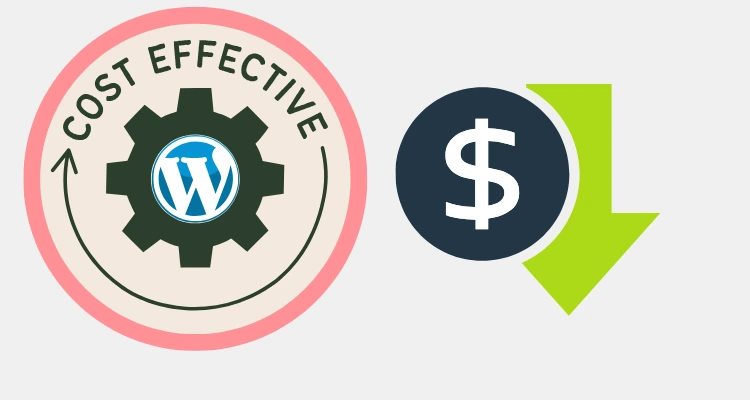
Budget is often a major concern for small businesses, and this is where WordPress shines. The platform itself is free to use (WordPress.org), and you only need to pay for essentials like WordPress hosting, a domain name, and optional premium themes or plugins—making it a cost-effective solution without sacrificing quality or functionality.
This makes it significantly more affordable than proprietary platforms that charge monthly fees or limit your control over the site. You get the freedom to scale your website without worrying about increasing costs tied to a platform's pricing structure.
Key Advantages of WordPress for Small Businesses
WordPress offers several advantages that make it an excellent platform for small businesses looking to build or grow their online presence. Here's a closer look at why it continues to be a favorite among business owners.
SEO Friendliness
Getting found online is essential for small businesses, and WordPress is built with search engine optimization (SEO) in mind. The platform's clean code and customizable permalinks make it easy for search engines to index your site. Beyond that, popular plugins like Yoast SEO and Rank Math give you control over key SEO elements such as:
- Optimizing meta titles and descriptions.
- Generating XML sitemaps for better indexing.
- Analyzing content readability and keyword use.
These tools simplify SEO for beginners and give small businesses the edge they need to compete online.
Scalability
WordPress is ideal for small businesses not just because it works well for beginners, but because it can scale as your business grows. Starting with a basic blog or informational site? You can add more features, like a store using WooCommerce, without switching platforms. With the support of specialized WooCommerce services, you can tailor your online store to match growth needs while ensuring smooth functionality. If managing this growing complexity becomes overwhelming, a WordPress website management service can help you maintain performance and security at every stage. These services streamline updates, backups, and optimization, allowing you to focus on growth. As your business expands, WordPress allows you to:
- Add unlimited pages.
- Integrate advanced tools for customer management.
- Handle increased website traffic without performance issues (with proper hosting).
This scalability ensures that your website evolves alongside your business.
Ease of Use
Small business owners often juggle multiple responsibilities, so a user-friendly platform is critical. WordPress offers an intuitive dashboard where you can:
- Add or edit content easily.
- Manage media files like images and videos.
- Install updates with just a few clicks.
For those just starting out, there's no shortage of tutorials, forums, and guides online to help you navigate the platform.
Community Support
WordPress has a massive global community of developers, designers, and users. This means that if you ever encounter a problem, you're likely to find a solution quickly. Whether it's free forums, YouTube tutorials, or detailed guides, there's plenty of help available. Plus, you can find professionals who specialize in WordPress to assist with custom features or troubleshooting.
WordPress combines SEO capabilities, scalability, ease of use, and strong community support, making it an invaluable tool for small businesses. Whether you're starting out or planning to grow, WordPress offers everything you need to succeed online.
Common Concerns About WordPress
While WordPress is a powerful platform, small business owners often have a few concerns about its maintenance, hosting, and usability. Here's a practical look at these issues and how to address them effectively.
Maintenance and Updates
One of the most common concerns about WordPress is the need for regular updates. The platform frequently releases updates to improve performance, fix bugs, and enhance security. In addition, plugins and themes also require updates to remain compatible with the latest version of WordPress.
Failing to update can leave your site vulnerable to security risks or performance issues. However, the process is simple:
- Updates can be completed with just a few clicks in the WordPress dashboard.
- Tools like ManageWP or hosting providers offering managed WordPress hosting can automate the process, saving you time. WordPress maintenance plans help keep everything running smoothly, simplify tasks, and less time-consuming.
Regular backups are also a must to ensure your data is safe in case of any issues.
Hosting Choices
WordPress is self-hosted, meaning you need to choose a hosting provider to get your site online. The hosting you select has a big impact on your site's performance, speed, and reliability. While this adds an extra decision for small business owners, there are plenty of hosting options designed specifically for WordPress.
Some hosting providers, like SiteGround, Bluehost, and WP Engine, offer:
- Optimized servers for faster load times.
- Built-in security features.
- Automatic backups and updates.
With the right hosting provider, your WordPress site can run smoothly and securely without much effort.
Learning Curve
For non-technical users, WordPress might seem a bit overwhelming at first. Unlike drag-and-drop website builders, WordPress offers more control, but that also means there's a small learning curve. Key challenges may include:
- Understanding how to install themes and plugins.
- Learning how to customize pages.
- Managing basic SEO settings.
Fortunately, WordPress is supported by an abundance of resources:
- Tutorials: Websites like WPBeginner provide step-by-step guides for beginners.
- Community Forums: Ask questions and get answers from experienced users.
- Support Services: Many hosting providers and third-party developers offer affordable support packages.
Once you get the hang of it, the flexibility and control WordPress offers will make the initial effort worthwhile.
By addressing these common concerns-maintenance, hosting, and the learning curve-you can make informed decisions and set up your WordPress site for success. With a little preparation, WordPress becomes a manageable and rewarding platform for small businesses.
WordPress vs. Other Website Builders
Choosing the right platform for your small business website is a critical decision. WordPress, Wix, Squarespace, and Shopify are among the most popular options, but each has its strengths and limitations. Here's how WordPress compares to the others in terms of cost, flexibility, and content ownership.
Cost
- WordPress: The WordPress software itself is free (WordPress.org), but you'll need to pay for hosting, a domain name, and optional premium themes or plugins. This allows for flexible budgeting, as you can start small and scale expenses as your business grows.
- Wix:Offers all-in-one pricing plans starting at a monthly fee, but its free plan includes ads on your site. Customization and scalability can require higher-tier plans, making it more expensive in the long run.
- Squarespace:Known for its sleek designs, Squarespace offers a flat monthly fee that includes hosting and templates. However, it can be costly for businesses needing advanced features.
- Shopify:Designed for e-commerce, Shopify's pricing is higher, with monthly fees and additional transaction costs unless you use its payment gateway.
Takeaway: WordPress is often the most cost-effective for businesses that can handle basic setup tasks or want to avoid long-term subscription fees.
Flexibility
- WordPress:WordPress is open-source, meaning you have complete control over your website. With thousands of plugins and themes, you can build anything from a simple blog to a complex e-commerce site or membership platform.
- Wix:A drag-and-drop builder, Wix is user-friendly but limited in customization. It's suitable for straightforward sites but struggles with advanced functionality.
- Squarespace:Squarespace shines with its beautifully designed templates but offers less customization compared to WordPress. It's ideal for visually focused businesses like photographers or designers.
- Shopify:As an e-commerce platform, Shopify is highly optimized for online stores but lacks the flexibility to create non-commerce sites.However, users can explore its full capabilities through a Shopify free trial before committing, making it easier to determine if the platform aligns with their specific business needs.
Takeaway: WordPress is the most versatile, allowing you to build any type of website with advanced customizations.
Ownership of Content
- WordPress:With WordPress, you fully own your website and its content. You're free to move your site to a different host or modify it as needed, ensuring long-term control.
- Wix and Squarespace: These are proprietary platforms. If you decide to switch providers, you'll face challenges exporting your content, as their ecosystems are closed.
- Shopify:Similar to Wix and Squarespace, Shopify locks you into its system. While you can export some data, moving your store elsewhere can be complicated.
Takeaway: WordPress gives you true ownership of your site and content, while proprietary platforms may limit your options if you ever decide to switch.
Which One Should You Choose?
- Choose WordPress if you value flexibility, affordability, and ownership.
- Choose Wix or Squarespace if you want an all-in-one solution with minimal setup and are okay with limited customization.
- Choose Shopify if your focus is entirely on e-commerce and you want a plug-and-play platform.
WordPress stands out as the best option for small businesses looking for a long-term, customizable solution without vendor lock-in. With the right setup, it can handle everything you need for your business to thrive online.
Real-Life Success Stories
WordPress has helped countless small businesses around the world build a strong online presence and achieve significant growth. Here are a few examples that demonstrate the platform's potential for businesses of all sizes and industries.
Business Name: WPForms (Global)
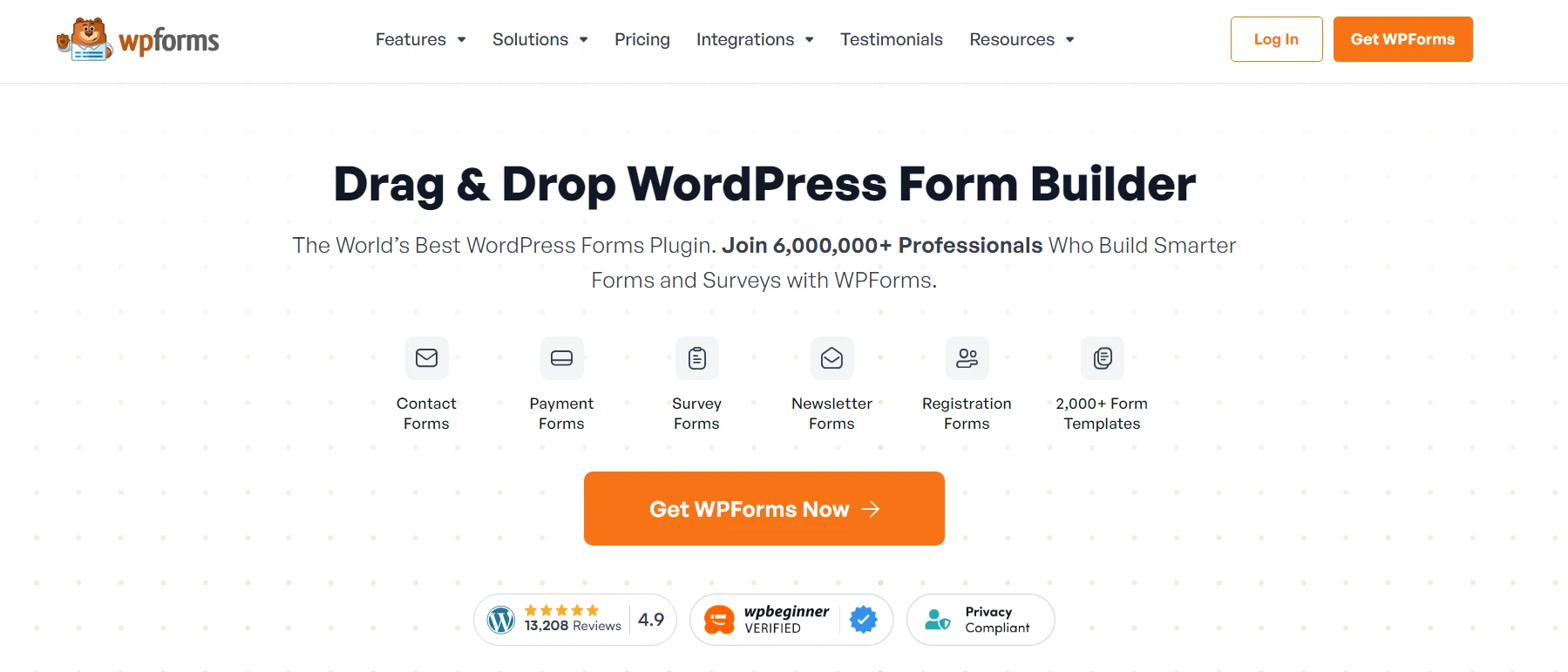
- Challenge: WPForms, a small team of developers creating WordPress plugins, needed a website to showcase their products and capture leads.
- Solution: They used WordPress to build an optimized site with a focus on landing pages, demo videos, and lead generation forms. By leveraging SEO plugins like Yoast SEO and speed optimization tools, they attracted a large audience of WordPress users.
- Result: WPForms grew into one of the most popular WordPress plugin providers, with millions of active installations.
How to Get Started with WordPress for Your Small Business
Setting up a WordPress website for your small business might seem challenging at first, but with the right steps, you can have a professional-looking site up and running in no time. Here's a simple guide to help you get started.
Step 1: Choose a Domain Name and Hosting Provider
Your domain name is your website's address (e.g., yourbusinessname.com), and hosting is the service that keeps your site online. Follow these tips:
- Domain Name: Keep it simple, memorable, and relevant to your business. Many small businesses also explore premium business domains from Atom to secure a strong and professional online identity.
- Hosting Provider: Look for a provider optimized for WordPress. Popular options include SiteGround, Bluehost, and WP Engine. These often offer one-click WordPress installation and free SSL certificates for security.
Step 2: Install WordPress and Select a Theme
Once you have hosting and a domain, it's time to set up WordPress:
- Installing WordPress: Many hosting providers offer an automatic installation process. Simply follow the steps provided in your hosting dashboard.
- Choosing a Theme: WordPress offers free and premium themes to match your business's style. Search the WordPress Theme Directory for free options or explore premium themes on sites like ThemeForest.
- Tip: Choose a responsive theme to ensure your site looks good on mobile devices.
Step 3: Install Essential Plugins
Plugins add functionality to your WordPress site. Here are the must-haves for small businesses:
- SEO: Install a plugin like Yoast SEO or Rank Math to optimize your site for search engines.
- Analytics: Use Google Site Kit or MonsterInsights to track visitor data and understand your audience.
- Backups: Set up a plugin like UpdraftPlus to schedule regular backups of your website.
- Security: Install a plugin like Wordfence to protect your site from threats.
These plugins ensure your website is secure, functional, and ready to attract customers.
Step 4: Customize the Website to Reflect Your Brand
Now it's time to make your website your own:
- Logo and Colors: Add your business logo and match the site's color scheme to your brand identity.
- Navigation: Create menus for easy navigation, such as Home, About, Services, and Contact pages.
- Content: Add high-quality images, engaging text, and call-to-action buttons that encourage visitors to contact you or make a purchase.
- Test the Site: Check your website on both desktop and mobile devices to ensure everything works smoothly.
FAQs for Small Business Owners
Here are answers to frequently asked questions about WordPress that small business owners often ask when considering it for their websites:
-
Do I need a developer to manage my WordPress website?
-
Can WordPress handle online stores?
- Product listings.
- Secure payment gateways.
- Inventory management.
- Shipping options. Whether you're selling physical products, services, or digital downloads, WordPress can manage your e-commerce needs.
-
What are the disadvantages of WordPress?
- Regular maintenance: Updates for themes, plugins, and the core software are necessary.
- Hosting dependency: The performance of your site depends on your hosting provider.
- Learning curve: Beginners may need time to familiarize themselves with the platform.
-
Why don't big companies use WordPress?
-
Is WordPress outdated in 2024?
-
Can I use WordPress for free?
-
Does Google prefer WordPress websites?
-
Which famous companies use WordPress?
- The New York Times Company.
- BBC America.
- Microsoft News. These examples highlight WordPress's flexibility and reliability.
-
Is Wix better than WordPress?
-
Is WordPress losing popularity?
-
Is WordPress future-proof?
-
Does WordPress need coding?
-
Can I use two themes in WordPress?
-
What are the limitations of using WordPress?
- Some plugins may conflict with each other.
- Customization beyond themes and plugins may require coding knowledge.
- Performance depends on hosting and proper setup.
Not necessarily. WordPress is designed for beginners, and most tasks like updating content, installing plugins, and managing themes can be handled without technical skills. However, for customizations or troubleshooting, hiring a developer can save time and effort.
Yes, WordPress is an excellent platform for online stores when paired with plugins like WooCommerce. It supports:
While WordPress is versatile, it does have some drawbacks:
Some large companies prefer custom-built websites to meet their unique technical or security requirements. However, many big brands do use WordPress (e.g., The Walt Disney Company and Sony Music), showing that it's capable of handling enterprise-level needs.
Not at all. WordPress is constantly updated to stay relevant. It powers 43% of websites globally, and its adaptability ensures it remains a modern and competitive platform.
Yes, the WordPress.org software is free to use. However, you'll need to pay for hosting, a domain name, and optional premium features.
Google does not officially prefer WordPress websites. However, WordPress's SEO-friendly features, like clean code, SEO plugins, and customization options, make it easier to optimize for search engines, which can improve rankings.
Many well-known companies use WordPress, including:
Wix is easier to use for beginners and offers an all-in-one package. However, WordPress provides far greater flexibility, scalability, and ownership. For small businesses planning to grow, WordPress is generally the better choice.
No, WordPress continues to dominate the CMS market and shows no signs of losing relevance. Its consistent updates and large community ensure it stays competitive.
Yes. WordPress's open-source nature, regular updates, and large developer community ensure it evolves with technology and remains a reliable choice.
For basic use, coding isn't required. You can install themes, use plugins, and manage content without writing a single line of code. However, coding knowledge allows for deeper customization if needed.
No, WordPress only allows one active theme per website. However, you can use plugins and custom code to achieve multi-theme-like designs if necessary.
Conclusion
WordPress remains one of the best platforms for small businesses looking to establish a professional, scalable, and affordable online presence. Its flexibility, rich plugin ecosystem, and cost-effectiveness make it a strong contender for businesses of all sizes and industries. While it may require some initial setup and maintenance, the benefits far outweigh the challenges, especially with the wealth of resources and support available.
Whether you're launching a simple informational site, an e-commerce store, or a fully customized web presence, WordPress has the tools to help your business grow. With proper planning, the right hosting, and a focus on your brand's unique needs, WordPress can serve as the foundation for your online success.
If you're ready to take the next step, start exploring WordPress today or reach out to professionals who can guide you through the process. Your small business deserves a platform that grows with you, and WordPress is ready to deliver just that.



